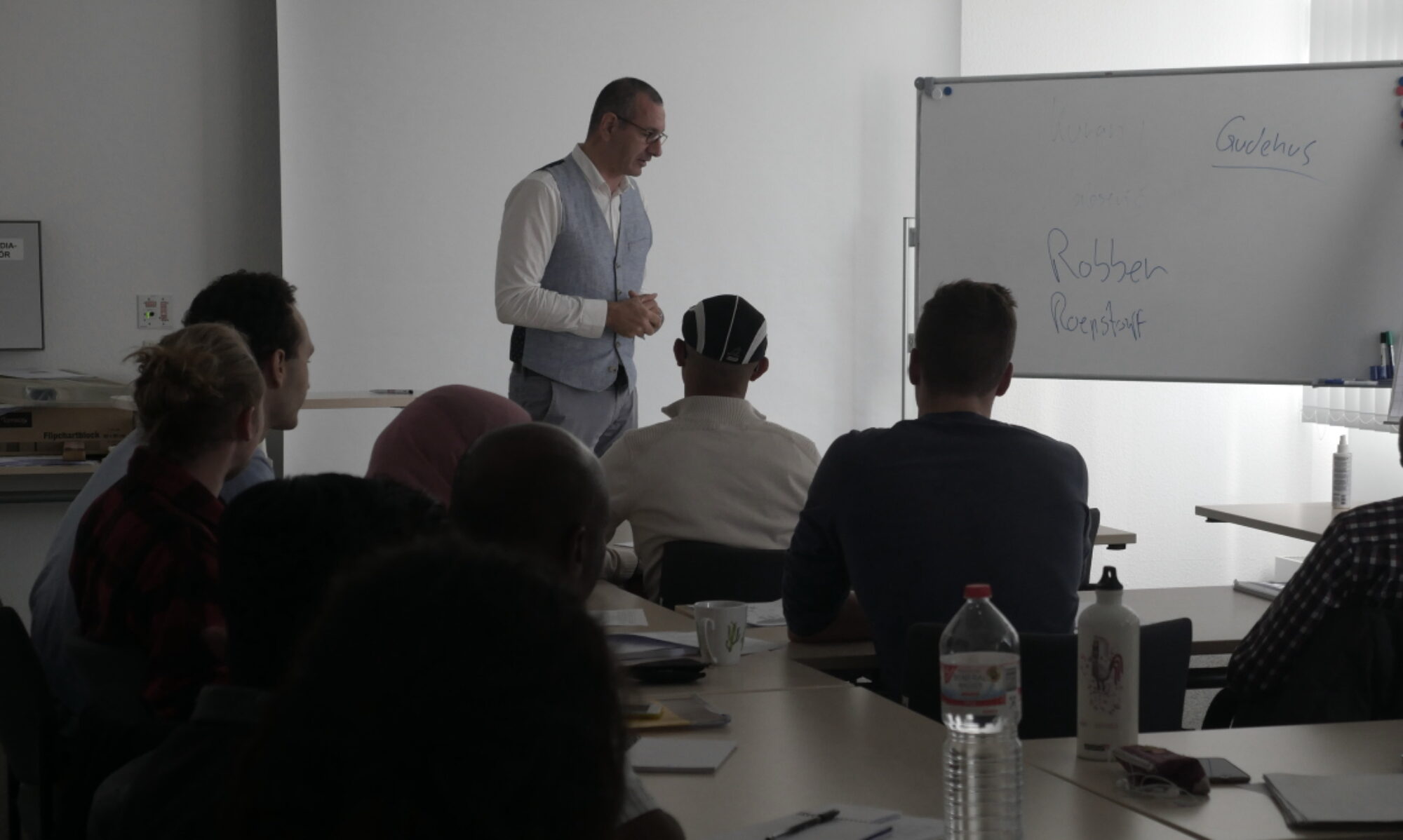Content: Methods & Methodology, 5 publications, 2 projects
Research is the centre of my academic life. Whether working with archival material, doing interviews or focus groups, coding hundreds of pages, annotating tweets, or formulating theoretical arguments. Since 2002 when starting with my Doctoral Dissertation I have taken part in about a dozen research endeavours, most of them interdisciplinary, some of the international. Among them were studies on museum visitors, memories of WWII, the notion of a European memory, reception of movies, and mentalities of Soldiers.
Methods & Methodology
The core of academic teaching and research is innovation. Challenging settled knowledge, looking out for new ways to understand and to share knowledge. Therefore, the development of research strategies, methods, teaching styles, knowledge presentation, and again working beyond disciplinary lines is at the very core of my work. Logically, this is only possible in exchange with colleagues and students.
Examples of such work are the adaption of coding techniques for the analysis of historical material, working with computer scientist on combing through twitter feeds, and the collaborative research design for the Practices of Violence (see below).
And regarding teaching I let students speak:
„From beginning the student is forced to deal with the content in an actively, to make own concepts about the subjects and develop ideas of access on his own. Gudehus provides the place for that but supports that process versed with advices or theoretical background if needed.” (NK)
„(…) he lets the students develop their own ideas freely and does not weight them down with what he thinks is right. But again, he puts the ideas to the acid test, which makes progress inevitable. However, if he recognizes that a group or individual are stuck at some point and even the discussion in the seminar does not help, he provides the right amount of structure and also offers private consultation shortly after.” (SI)
5 Publications
A full list is available on academia.edu
1 – Gewaltforschung. In Uwe Wolfradt, Lars Allolio-Näcke und Paul S. Ruppel (Hrsg.). Kulturpsychologie: Eine Einführung. Wiesbaden: Springer (2023).
2 – Mit Reinhold Görling, Andreas Hamburger, Gabriele Schwab, Jürgen Straub, Annette Streeck-Fischer und Wolfgang Wöller. Traumadiskurse. Trauma Kultur Gesellschaft 1,1 (2023).
3 – Mit Pradeep Chakkarath. HARM – Concept and Aims of an Open Journal. HARM 1 (2023).
4 – Dossier: Genocide Research – Some Observations and Suggestions. Genocide Studies and Prevention 15, 3 (2021).
5 – Appropriations of Social Psychological Studies in Genocide Research Exemplified by References to Solomon E. Asch’s Study of Independence and Conformity. Journal of Genocide Research (2021).
2 Projects
1 – Practises of Violence – An Online Research Encyclopaedia
The Online Research Encyclopaedia has the goal to (1) document practices of collective violence as comprehensively as possible and (2) to analyse them comparatively along temporal and spatial axes.
Inspired by blogs, online encyclopaedias, and open access journals the platform aims at bringing together scholars from all disciplines and corners of the world (localities) – students and professors alike.
Practices of collective violence are universal in the sense that they have existed throughout human history (temporal) and in probably most if not all cultures (spatial). This omnipresence makes it necessary to cast a net as wide as possible in order to gather information regarding a broad range of cases.
The Practises of Violence Online Research Encyclopaedia is the visible End of the research on practices of collective violence. It presents basic information and resources on practice theory and violence research as well as the theoretical and methodological frame for the description of cases. The core of the Encyclopaedia, however, is the documentation of practices and their comparative analysis in theoretical papers.
2 – Psychology of Collective Violence – A (Universal) History
Violence, the harming of humans by other humans, is inherently a psychological topic. Interestingly, however, it is mostly not the violence itself but its causes, conditions, and the motivations of those carrying it out that psychologists work on, for example, aggression, inhibition, instincts, coercion, group dynamics, lust (pleasure). Further, violence research carried out in other disciplines refers to only a handful of psychological studies (e.g., Milgram, Asch, Tajfel, Zimbardo) in order to fill holes in their explanatory models. Finally, studies on collective violence, namely genocidal violence, are regularly an often rather eclectic mix of concepts and theories.
Therefore, there is a need to (1) properly historicise psychological conceptualisations and explanations of violence. (2) Such an account has to include more than the usual suspects. It has to present and discuss other Western psychologies like the diverse schools of culture sensitive psychologies (e.g., cross-cultural psychology. Kulturpsychologie). This has to encompass also non-Western models that aim to explain human behaviour in the context of collective violence.
